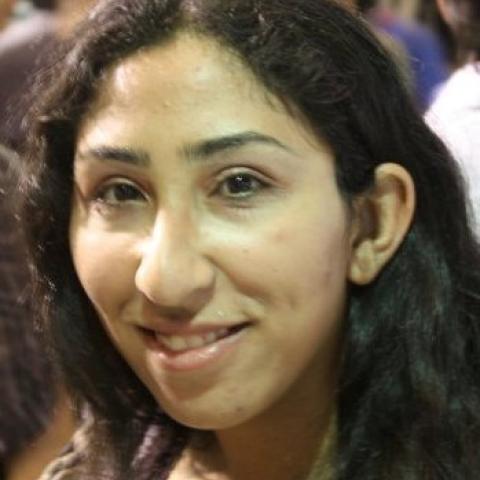Get an Arab Woman to Say it for You
Mona Al-Tahawy’s article, Why Do They Hate published in Foreign Policy magazine, caused huge controversy over the past few days. The bottom line of the article is women all over the MENA region are oppressed by every single man in their lives; men in their families, in society at large, male members of the government, MPs from the Salafi and Muslim Brotherhood-affiliated political parties etc. They all miraculously agree and come together to conspire against us women and the reason is: HATE. They simply hate “us”.
Many responses have been issued, most of them attacking Mona personally. A thing I can understand but not find useful. A friend told me we really have to think about what she said not launch personal attacks against her. I stopped for a while to think about what really bothered me with the article and I found that I am not comfortable with neo-orientalist approach she uses, the way she interprets numbers and her terminology. This is what is going to be discussed in this article.
Manipulation of numbers and studies
If you want to look smart and credible just use numbers, cite studies and surveys and then say whatever you want to say. This is the strategy Mona used to unquestionably prove women’s plight in the region. Statistics were used to demonstrate the spread of circumcision in Egypt, early marriage in Morocco, the similar status of women in both Saudi Arabic and Yemen. Laws were used to prove existing inequities in Egypt, Kuwait and Libya. Even in countries with progressive laws like Tunisia, the article speaks of the intimidation attempts at the hands of religious groups against academics as proof of the deteriorating status of women. I have huge problem with generalizations, I would never say that a rich Saudi college girl who has a car with her own chauffeur is just as oppressed as an illiterate married young girl with four children in Sanaa. Failure to contextualize the issues and to take the economic factor into consideration to show that women’s problems in the Middle East is a monolithic tragedy of patriarchy, is reductive to women’s struggle in their multiple lived realities. It is very easy to argue with numbers about the advances of women’s in Middle East in education, labor force, maternal health but we all know that things are not that straight forward and you can manipulate numbers in the way you want. Equality for Arab women is far from achievable but women are not hostages at their own houses lamenting their conditions.
“FGM” and the curse of terminology”
I am a human rights advocate and I don’t believe that female circumcision should be accepted as a cultural practice yet I have so many problems in identifying with Mona’s argument here. First: vertical funding from Western governments to work on what they call “Female Genital Mutilation (FGM)” is extremely problematic as it reinforces an obsession with Arab women’s genitalia (besides proving that it's not exclusive to Arab men). Those governments spent billions of dollars on circumcision and turned a blind eye to maternal morbidity, abortion and reproductive cancers, among other issues. Second: nobody and I mean nobody in the whole region calls circumcision “FGM” not only Al-Qaradawy whom the article criticizes. Female genital mutilation is a a Western invented term that means in Arabic “Al-tashweeh al-gensy Lel-enath” and it's simply not the right term in the region. We have to call things with their own names and it is called “khitan” – circumcision - even if activists think it is mutilation. And yes it is not women’s only problem. In a study done by Dr Mwaheb Elmoulhy and others to estimate how circumcision affect women’s sexual pleasure, they found that women speak of other aspects of their life that affect their sexual pleasure negatively, such as their economic conditions and the nature of their relationships with their husbands.
Who are those women?
I tried to find myself in this piece since it supposedly speaks on behalf of all of us but I could not. I am not the activist that declares she is hated by her male counterparts just because she is a woman and I am not one of those who are forced to be covered and stripped of all their rights. I could not find many of my female friends who are engaged in their own battles to enhance their wages or are involved in political parties, student movements, labor movements, artistic enterprises or those who are married and are raising their children - whether they are working or not. My problem with such writing is that it erases all those women, de-contextualizes them and makes them a unified group of victims of hatred . As a matter of fact, we are not victims of anything.
Paintings in the article depicting Arab women naked and painted in a black niqab-style, covering all their bodies with black except for their inviting eyes are really disturbing. One quick stop at the “The Colonial Harem” by Malek Aloula and you'll understand why these images are orientalist and stereotypical; they reinforce the image of weak covered beautiful woman sending a nonverbal message: "Save me…I am weak, beautiful and naked”.
People were wondering why Azza Elgarf- the female MP from the Muslim Brotherhood affiliated Freedom and Justice Party- is the fiercest parliamentarian in attacking women’s rights. The answer is simple. For the right wing conservatives it is better to get a woman to attack women; “get yourself a woman to say it for you”. I would argue the same for neo-orientalists who would get an Arab woman to say it for them. And between the Western- saving rhetoric and fundamentalism, the feminist struggle in the Middle East will always try to find its own space between a rock and a hard place.




